Platform regulation
Filter resources
-

Delete first, think later
The proposed Digital Services Act wants to push online platforms to quickly remove illegal content. But it uses a sledgehammer on a most intricate challenge: moderating online speech. The result would crush freedom of expression instead of enabling it. This is the second blog post in a new series dedicated to the EU’s proposed Digital Services Act and Digital Markets Act.
Read more
-

Why Facebook’s proposed hate speech policy on Zionism would only add fuel to the fire
Pressured to combat surging hate speech and anti-Semitism on its platform, Facebook is looking into how it should moderate the use of the word “Zionist,” and whether to add the term as a protected category under its hate speech policy. EDRi's member Access Now doesn’t think that is a good idea, particularly given Facebook’s inability to strictly adhere to human rights principles in its content moderation practices.
Read more
-
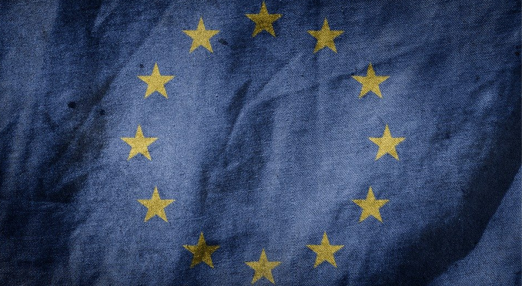
At a glance: Does the EU Digital Services Act protect freedom of expression?
The Digital Services Act is in many ways an ambitious piece of legislation that seeks to make ‘Big Tech’ accountable to public authorities through new significant transparency and due diligence obligations. It also contains many provisions that could help protect users’ fundamental rights. Whether it will be successful at protecting freedom of expression from undue restrictions or reining in the power of Big Tech rather than cementing it, is, however, questionable. EDRi's member ARTICLE 19 share its first thoughts on why.
Read more
-

Italy proposes age verification and digital identities for accessing social media
EDRi member Hermes Center sheds light on the current case against TikTok in Italy, where three solutions are circulating on how to make sure that children will not access certain online contents unless supervised by their guardians.
Read more
-
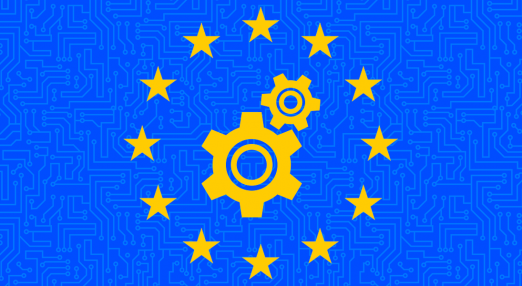
The Digital Markets Act must do more to protect end users’ rights
As the European Commission sets out plans for a Digital Markets Act, EDRi calls for the protection of users’ human rights to be at the centre of plans to regulate the role platform gatekeepers play in the future of Europe’s digital environment.
Read more
-
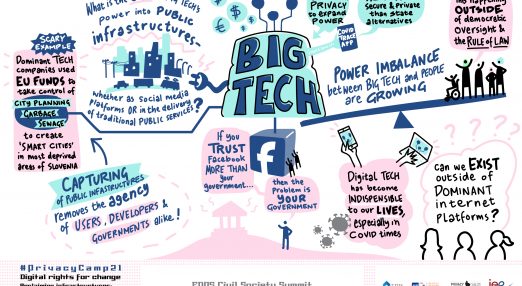
How Big Tech maintains its dominance
As Big Tech deepens its dominance into new public domains, major issues arise around fundamental rights, democracy and justice. This article reflects the conversation that took place at the 2021 EPDS Civil Society Summit which was part of #PrivacyCamp21.
Read more
-
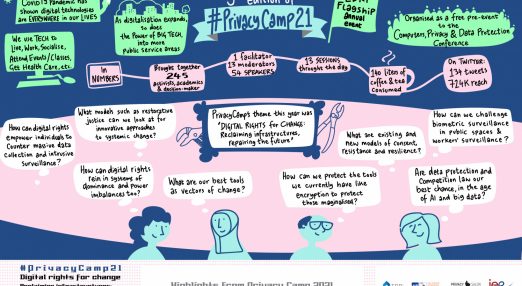
#PrivacyCamp21: Event Summary
The theme of the 9th edition of Privacy Camp was "Digital rights for change: Reclaiming infrastructures, repairing the future" and included thirteen sessions on a variety of topics. The event was attended by 250 people. If you missed the event or want a reminder of what happened in the session, find the session summaries below.
Read more
-
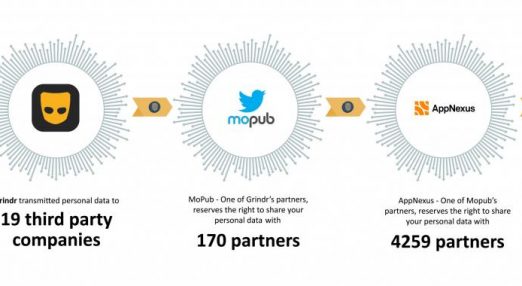
The Dating App “Grindr” to be fined almost € 10 Mio
On 26 January, the Norwegian Data Protection Authority upheld the complaints, confirming that Grindr did not recive valid consent from users in an advance notification. The Authority imposes a fine of 100 Mio NOK (€ 9.63 Mio or $ 11.69 Mio) on Grindr. An enormous fine, as Grindr only reported a profit of $ 31 Mio in 2019 - a third of which is now gone. EDRi member noyb assisted with writing the legal analysis and formal complaints.
Read more
-
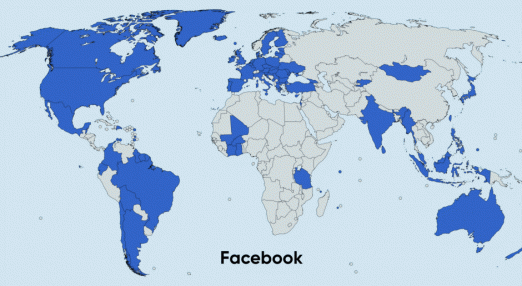
Online political ads – a study of inequality in transparency standards
In its new report, EDRi member PI looks into the implementation of transparency tools by Facebook, Google and Twitter in relation to political advertising. This work was produced in collaboration with partner organisations InternetLab and ELSAM.
Read more
-

The EU’s attempt to regulate Big Tech: What it brings and what is missing
This week, the European Commission has proposed two long-awaited pieces of digital legislation, the Digital Services Act and the Digital Markets Act. Despite a number of good provisions, there are also major shortcomings which must be addressed to guarantee the protection of digital rights.
Read more
-

‘A for effort’: European Commission DSA/DMA proposal falls short of the systemic change needed to rein in Big Tech power
The Commission’s proposal is an important step but falls short of putting forward an ambitious plan to break free from the centralised platform economy that defines people’s online experiences today.
Read more
-

Big Tech’s dominance: only laws can limit its power
Big Tech companies like Facebook have grown so large that the U.S. antitrust authority F.T.C. is considering breaking them up. We need laws that limit the power tech firms wields over our lives.
Read more
